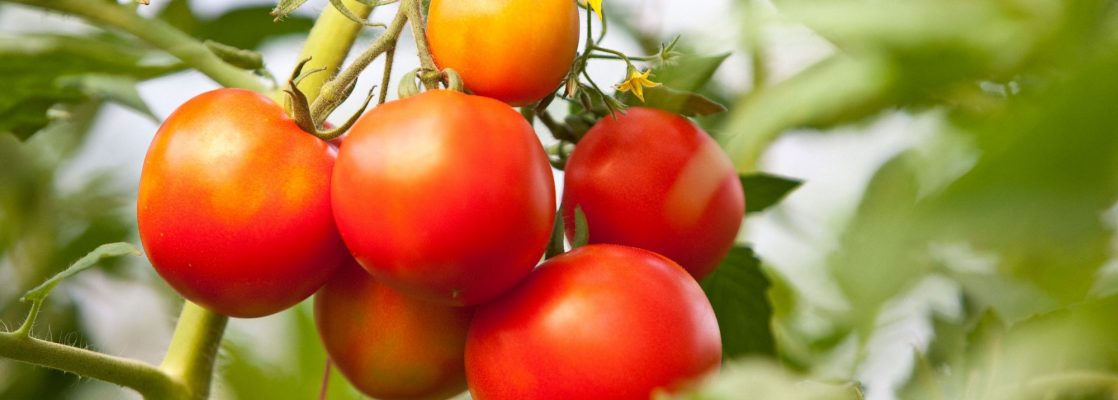Tomato (Solanum lycopersicum)
Health Benefit

Tomato (Solanum lycopersicum) is a fruit from the nightshade family native to South America.
Despite botanically being a fruit, it’s generally eaten and prepared like a vegetable.
Tomatoes are the major dietary source of the antioxidant lycopene, which has been linked to many health benefits, including reduced risk of heart disease and cancer.
They are also a great vitamin C, potassium, folate, and vitamin K source.
Usually red when mature, tomatoes can also come in a variety of colours, including yellow, orange, green, and purple. What’s more, many subspecies of tomatoes exist with different shapes and flavours.
May Reduce Chronic Disease Risk
Research has shown that diets rich in tomatoes and products like tomato juice may reduce your risk of certain chronic diseases.
May Improve Heart Disease Risk Factors
Tomatoes have long been associated with improved heart health.
They contain potent antioxidants, such as lycopene and beta-carotene, which help reduce heart disease risk factors like high blood pressure, high cholesterol, and fat buildup in your arteries (atherosclerosis).
A review including 584 people discovered that those who had diets rich in tomatoes and tomato products had a significantly reduced risk of heart disease compared to those who had a low intake of tomatoes (18Trusted Source).
Another review of 13 studies found that lycopene from tomato products taken in doses over 25 mg per day lowered levels of “bad” LDL cholesterol by about 10% and significantly reduced blood pressure (19).
For reference, 1 cup (240 ml) of tomato juice provides approximately 22 mg of lycopene (20).
What’s more, a review of 21 studies associated supplementing with tomato products with significant reductions in levels of “bad” LDL-cholesterol, the inflammatory marker IL-6, and notable improvements in blood flow (21).
May Protect Against Certain Cancers
Due to its high levels of beneficial nutrients and antioxidants, tomato juice has been shown to have anticancer effects in several studies.
A review of 24 studies associated a high intake of tomatoes and tomato products with a significantly reduced risk of prostate cancer
In a test-tube study, lycopene extract derived from tomato products inhibited the growth of prostate cancer cells and even induced apoptosis, or cell death
Animal studies also observe that tomato products may have a protective effect against skin cancer.
Mice that were fed red tomato powder for 35 weeks had significantly less skin cancer development after being exposed to UV light than mice on a control diet
Though these results are promising, more research is needed to understand how tomatoes and products like tomato juice may affect cancer development in humans.
How to Make Your Tomato Juice
For creative people in the kitchen, homemade tomato juice can be easily prepared with a few nutritious ingredients.
Simply cook sliced fresh tomatoes for 30 minutes over medium heat. When cooled, toss the tomatoes into a high-powered blender or food processor and pulse until the desired consistency is reached.
You can blend the tomato mixture until a drinkable texture is reached or leave it thicker to use as a sauce.
The tomatoes can be combined with other veggies and herbs, such as celery, red peppers, and oregano, to boost the nutrition content and flavour even more.
A helpful tip is to add a bit of olive oil when cooking your tomatoes. Because lycopene is a fat-soluble compound, eating or drinking tomatoes with a bit of fat increases its availability to your body

